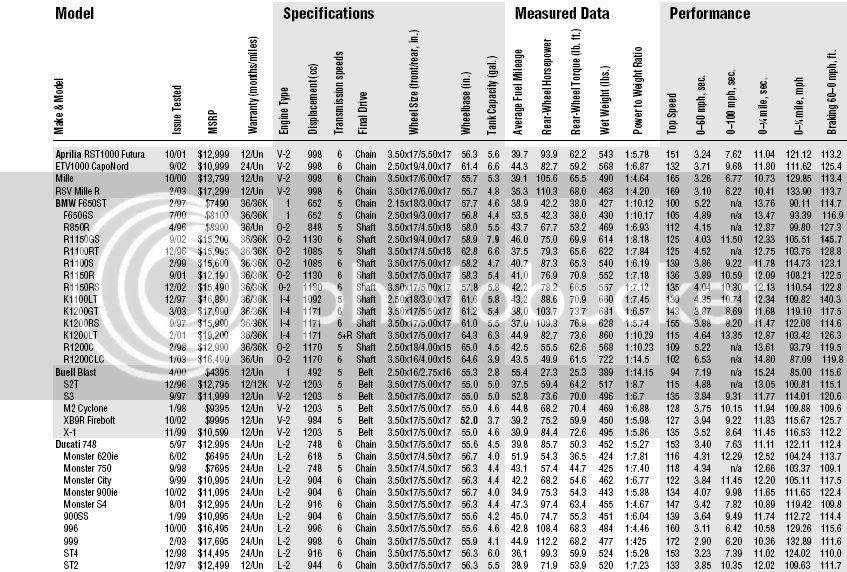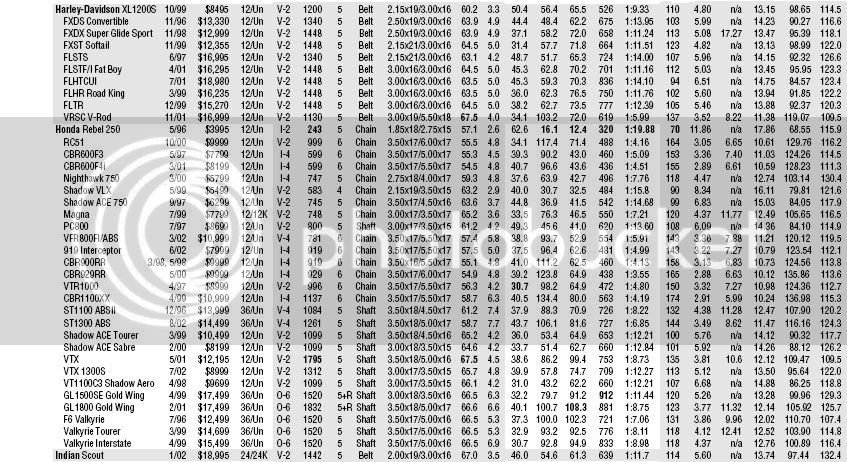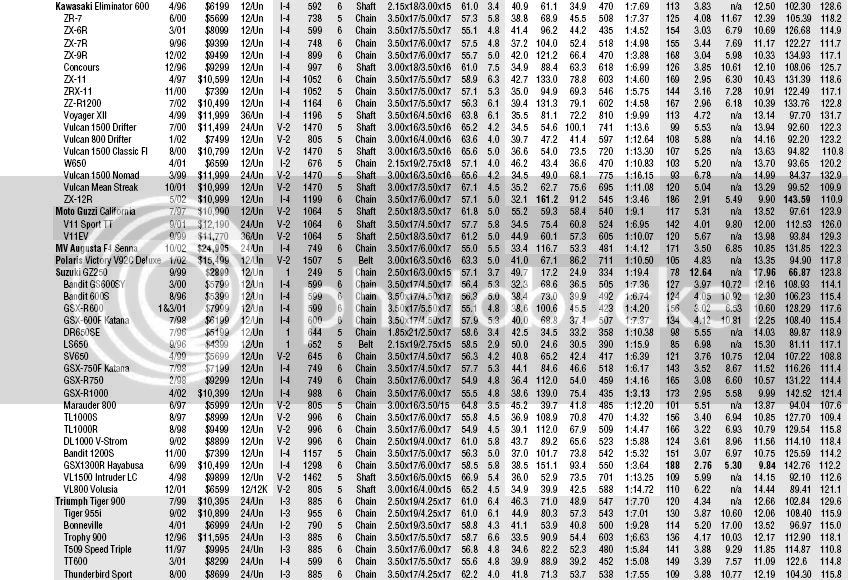ionbeam
2 FUN
Here are a few other data points for braking distances (plus some bonus data too).













Basic ABS: The ABS system monitors wheel speed and chassis speed, when the wheel speed becomes too low vs chassis speed (known as the slip ratio), the ABS actuates and begins to release brake fluid pressure to the rear caliper. Usually the magic trip point is considered to be a 86% slip ratio (also known as slip angle) = impending wheel lockup. This is a software calculation, therefore not adjustable. If your ABS actuates, the wheel is at the edge of skidding so you wouldn't want to adjust the trigger point any further.Is there any way to adjust the sensitivity of the ABS, or in other words, adjust when it kicks in?
I can understand how the ABS would get front and rear wheel speeds, but how does it get chassis speed?Basic ABS: The ABS system monitors wheel speed and chassis speed, when the wheel speed becomes too low vs chassis speed (known as the slip ratio), the ABS actuates and begins to release brake fluid pressure to the rear caliper. Usually the magic trip point is considered to be a 86% slip ratio (also known as slip angle) = impending wheel lockup. This is a software calculation, therefore not adjustable. If your ABS actuates, the wheel is at the edge of skidding so you wouldn't want to adjust the trigger point any further.Is there any way to adjust the sensitivity of the ABS, or in other words, adjust when it kicks in?
The noise and pulsing you feel from the ABS system has nothing to do with actual ABS operation, it is an 'engineering feature' added to alert the rider/driver that the ABS system has been activated!
Possibly the ECU is reading the speedometer sensor at certain intervals (once per second, 1/2 second, 3 seconds?) and comparing that to wheel lock-up sensor readings. :dntknw:I can understand how the ABS would get front and rear wheel speeds, but how does it get chassis speed?
John
Intentional, per the FSM.I doubt that buzzing and pulsation of the ABS system are an "intentional" engineering feature
[Cynic] Or "spin," because it's a consequence of the ABS function. [/cynic]Intentional, per the FSM.I doubt that buzzing and pulsation of the ABS system are an "intentional" engineering feature
Intentional, per the FSM.I doubt that buzzing and pulsation of the ABS system are an "intentional" engineering feature
Second thing about ABS vs. non-ABS stats: I don't know anybody that counts accidents that didn't happen. ABS saved my bacon twice in my car. Did my non-accidents reduce my rate? Um, no. I do get a small discount on collision for having them, but I keep hearing about the discount being removed someday.
What you say above may actually be true to some extent. Once ABS came out drivers in the northern climes, where ice and snow abound, flocked to the added option, even though it significantly added to the cost of their new cars. It really does make a lot of difference in those slippery and varying traction conditions. So it may be that the group that chose ABS were subjected to more accident situations.Second thing about ABS vs. non-ABS stats: I don't know anybody that counts accidents that didn't happen. ABS saved my bacon twice in my car. Did my non-accidents reduce my rate? Um, no. I do get a small discount on collision for having them, but I keep hearing about the discount being removed someday.
The stats just look at cars with ABS vs. cars without ABS and there is most often little to no difference in actual accident rates. If what you are describing were to be true then that would mean that ABS equipped cars encountered MORE accident situations than non-ABS cars and the ABS saved them part of the time for the statistics to equal out. Not likely. Maybe...but not likely. For each situation like yours where it "saved" you it seems to have "caused" an incident elsewhere.
A "deal breaker"? <_< You gotta be kidin' me! :blink:The MCN reports the FJR as taking 20-25 feet more from 65 mph than the Honda, Kawi or BMW.
From 120-125 up to 145 feet is a huge difference.
Anyone care to argue that this isn't REALLY important?
To me, it's almost a deal breaker.
Thanks.